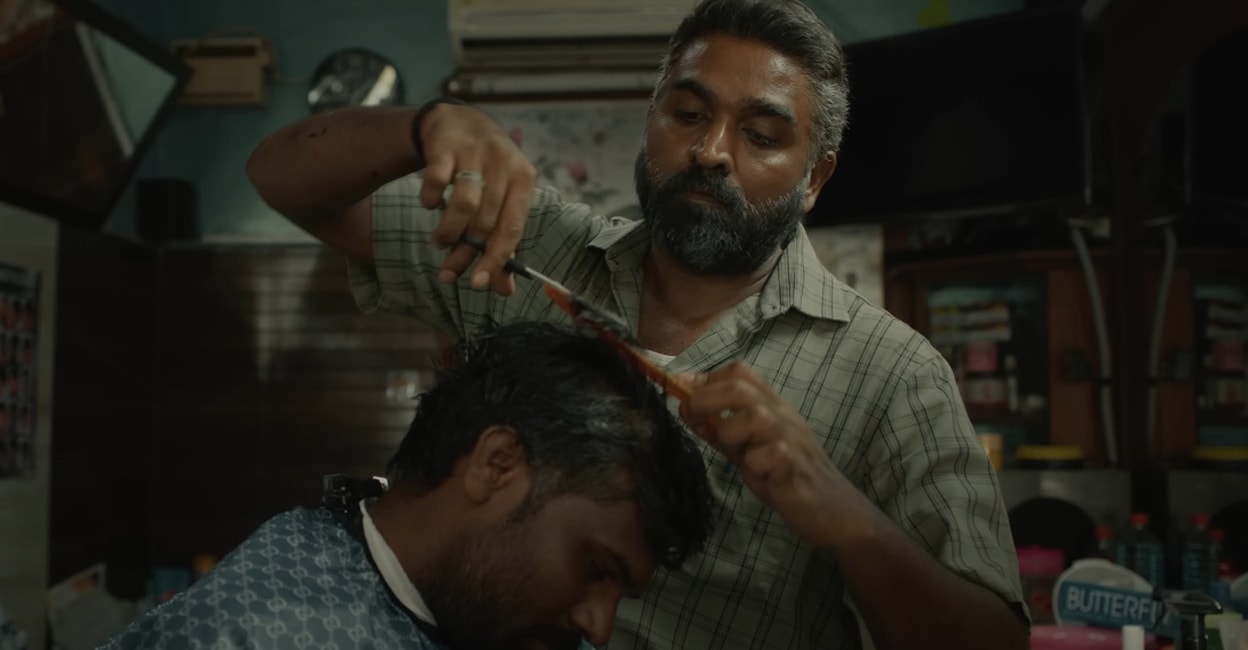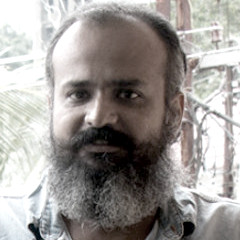Beyond revenge: Decrypting symbolism of rape survivors and dustbins in Vijay Sethupathi's 'Maharaja'

Beyond the 'Oldboy'-style climax and the superb performances from Vijay, Anurag, and the rest of the cast, what truly stands out is the symbolism Nithilan employs to critique the rape culture of our patriarchal society.
Beyond the 'Oldboy'-style climax and the superb performances from Vijay, Anurag, and the rest of the cast, what truly stands out is the symbolism Nithilan employs to critique the rape culture of our patriarchal society.
Beyond the 'Oldboy'-style climax and the superb performances from Vijay, Anurag, and the rest of the cast, what truly stands out is the symbolism Nithilan employs to critique the rape culture of our patriarchal society.
If you think Nithilan Swaminathan's 2024 Vijay Sethupathi film 'Maharaja' is just another revenge drama in which a father goes out of his way to avenge the wrongs done to his daughter, this article might help you view the movie from a new vantage point. It may explain why Vijay Sethupathi chose 'Maharaja' as his 50th film, marking a significant milestone in his acting career. Nithilan's complex script, narrated in a disjointed fashion without any hand-holding, would have likely captivated Anurag Kashyap, who seems eager for a slice of South Indian cinema for its cinematic highs. Beyond the 'Oldboy'-style climax and the superb performances from Vijay, Anurag, and the rest of the cast, what truly stands out is the symbolism Nithilan employs to critique the rape culture of our patriarchal society.
Watch 'Maharaja' on Netflix

In the first half of the film, an injured and unconscious Maharaja (Vijay Sethupathi) is awakened by a king cobra, using serpent symbolism to highlight the rebirth of a barber as a resolute father. When he walks into the police station to report the theft of a dustbin named Lakshmi, both the police and the viewers are led to believe he is goofy, suggesting we are in for a lighthearted ride as they toss him around, slapping and bullying him. If you struggle to see the connection between dustbin Lakshmi and Jothi (Sachana Namidass), wait for the story to unfold; the picture will become clearer. The smile will fade when you find yourself staring at the ugly reflection of society—the one it turns towards rape survivors and their families. Here, Nithilan elevates 'Maharaja' from the realm of cliche revenge dramas to a space where art confronts social vices without becoming didactic, disguising itself as a 'normal revenge drama with a pinch of comedy'
For the perpetrators, rape is mostly about power, more than sexual desire. Survivors are treated like disposable objects, akin to worthless dustbins. Here, after intruding into Jothi's house before killing her, two of the robbers want to use her. And they have their excuses. Asking permission from Selvam (Anurag Kashyap) for sexually assaulting Jothi, Nallasivam (Singampuli) says that his wife is not in town, so he needs to relieve himself, while Dhana (Manikandan) trivialises it by noting how many times they have done it before. Later, while recreating the crime, Nallasivam tells Maharaja that she was changing her dress in front of them and she was beautiful. In this scene, Nithilan explicitly shows how rapists dehumanise women through the interaction between Nallasivam and Maharaja.
The rapist of Maharaja's daughter, on the pretext of hiding it from others—in this case, the law—compares his daughter to a mere dustbin and threatens him about the consequences of complaining against them. This is reminiscent of how society and perpetrators find ways to blame the survivors based on their conduct or work as the reason for the crime and how they would intimidate survivors against seeking legal help for justice. Once a woman survives the trauma of rape, she is dragged back into the same dark alley repeatedly by our justice system, which is surprisingly lenient towards attackers. When Maharaja narrates his story, the police officers either find it amusing or grow irritated, cutting him off midway. They offer no legal assistance and show no empathy.
However, Nithilan refuses to back down after holding a mirror to society. In the film, the police officers are depicted as facilitating Maharaja's revenge once they learn his true story. Rather than viewing them as facilitators of jungle law, this can be interpreted as a positive shift in our legal system, becoming more empathetic towards survivors and their families. Nithilan crafts Jothi as a gritty character; upon regaining consciousness, she demands to confront her attacker. She refuses to hide her face or even entertain the thought that she has lost her life or dignity due to someone else's actions. This is a powerful statement in today's world, which, despite being politically sensitive, remains a hostile place for women.

